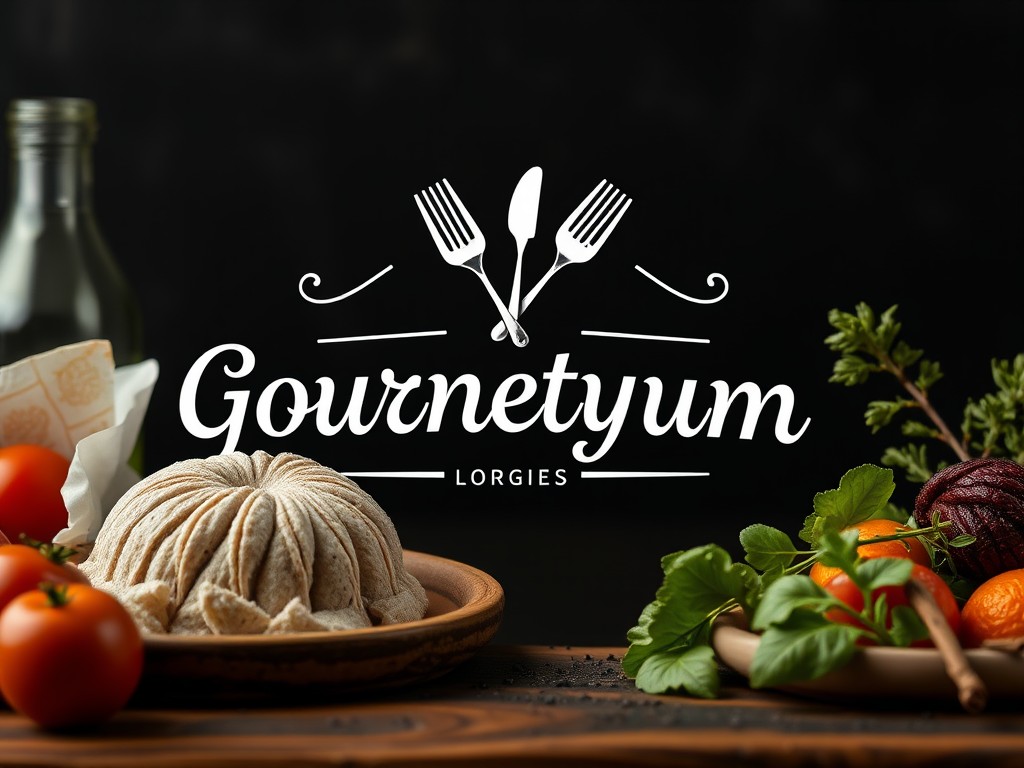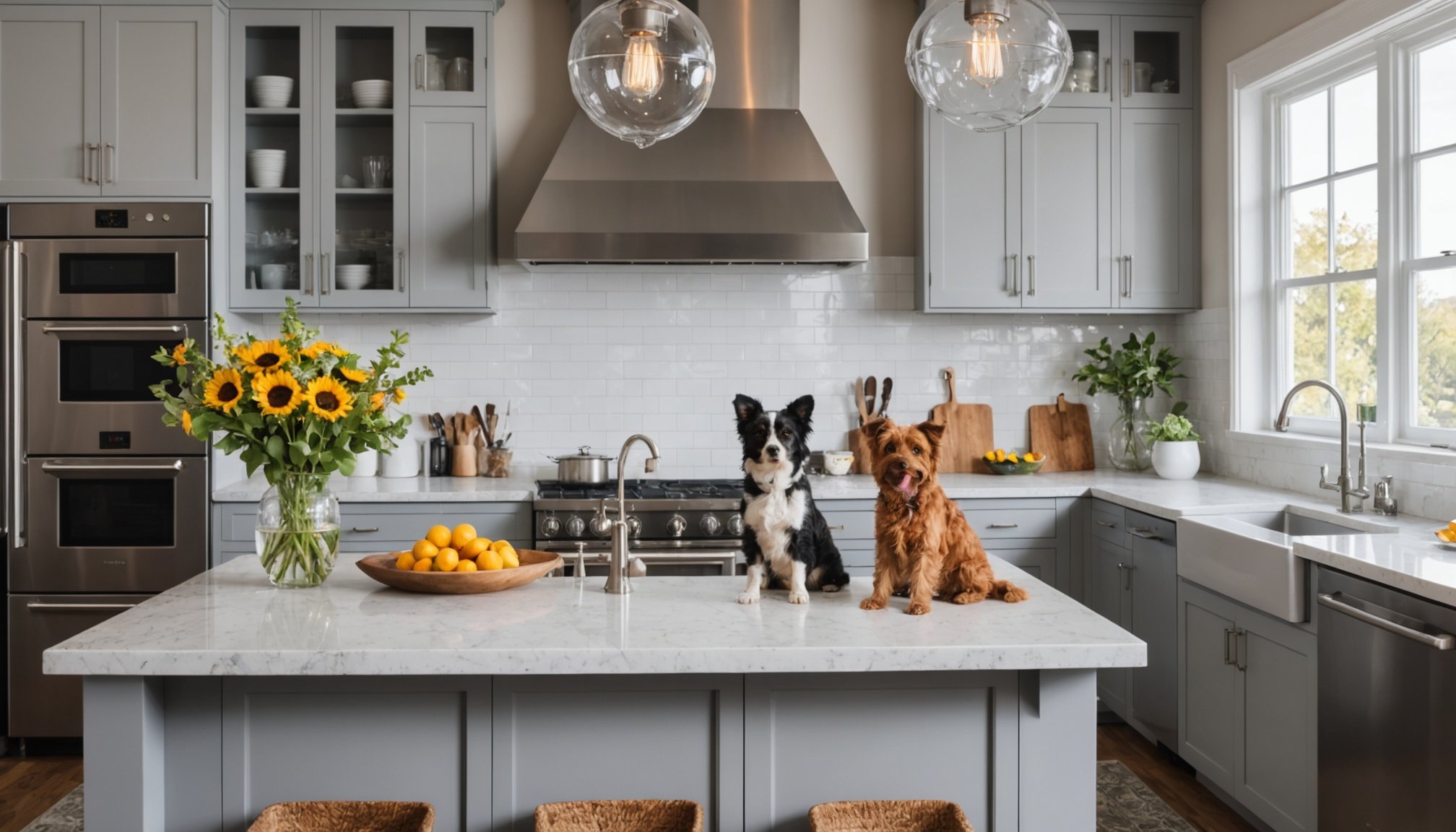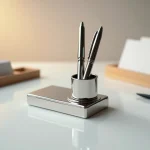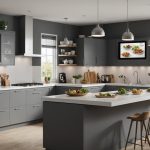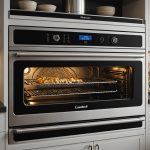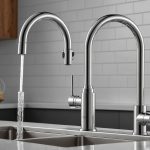Creating a stylish kitchen that accommodates pets can seem challenging. Striking a balance between aesthetics and functionality is essential for pet owners. This guide offers practical tips to design a chic yet pet-friendly space. From choosing durable materials to incorporating clever storage solutions, these strategies will help you maintain elegance without compromising your furry friends' comfort. Discover how to harmonize style and practicality for a kitchen that's perfect for both you and your pets.
Understanding the Basics of Pet-Friendly Kitchen Design
Designing a kitchen that accommodates both style and pets can be challenging but rewarding.
Have you seen this : How Kitchen Design Influences Resale Value in UK Homes: Unlocking the Secrets to Maximum Return
Combining Aesthetics with Functionality
Creating a pet-friendly kitchen design involves balancing aesthetics with functionality. It's essential for pet owners to ensure that the kitchen is both visually appealing and practical for everyday use. Consider using materials that are durable and easy to clean, such as tile or laminate flooring, which can withstand spills and scratches.
Key Considerations for Pet Safety and Comfort
When designing a kitchen, prioritize pet safety and comfort. Secure cabinets and drawers to prevent curious pets from accessing harmful substances. Install a designated feeding area to keep food and water bowls from being knocked over. Additionally, consider adding a cozy nook where pets can rest while staying close to family activities.
Also read : Essential Guide to Installing an Under-Sink Composting System in Your UK Kitchen
Common Pet-Related Challenges
Pet owners often face challenges such as shedding, accidents, and clutter in kitchen spaces. To address these, use a vacuum system to manage fur and crumbs efficiently. A well-organized storage system for pet supplies can also help maintain a tidy environment.
- Pet-friendly kitchen design tips:
- Use non-toxic materials
- Incorporate pet gates
- Designate pet zones
By focusing on these elements, you can create a harmonious and functional kitchen that caters to both human and furry family members.
Choosing the Right Materials
Selecting the right materials is crucial for a pet-friendly kitchen.
Overview of Pet-Friendly Materials
When designing a kitchen that accommodates pets, choosing materials that are both durable and stain-resistant is essential. Opt for flooring options like ceramic tiles or luxury vinyl, which are not only stylish but also withstand scratches and spills. For countertops, consider quartz or stainless steel, known for their easy-to-clean properties and resistance to stains.
Benefits of Stain-Resistant and Easy-to-Clean Finishes
Stain-resistant surfaces are a game-changer in a pet-friendly kitchen. They simplify maintenance, allowing pet owners to clean up messes quickly and efficiently. Materials like laminate or sealed stone offer an easy-to-clean finish, making them ideal for busy households with pets. These surfaces help maintain a neat and hygienic environment, crucial for both human and pet health.
Recommendations for Materials That Withstand Wear and Tear
To ensure longevity, select materials that can endure daily wear and tear. Flooring options like bamboo or cork are both durable and environmentally friendly, offering a balance between aesthetics and functionality. For cabinetry, consider using high-pressure laminate, which resists scratches and maintains its appearance over time.
- Durable flooring: ceramic tile, luxury vinyl
- Stain-resistant countertops: quartz, stainless steel
- Easy-to-clean finishes: laminate, sealed stone
Choosing the right materials ensures your kitchen remains beautiful and functional, even with the presence of furry companions.
Smart Layouts for Pet Mobility
Enhancing your kitchen's design for optimal pet movement and comfort.
Designing Spaces for Easy Pet Movement
Creating a kitchen layout that facilitates easy pet movement is crucial for a harmonious home environment. Consider open floor plans that allow pets to navigate without obstacles. Ensure that walkways are wide enough to accommodate both human and pet traffic comfortably. This approach not only enhances mobility but also reduces the risk of accidents.
Importance of Creating Separate Zones for Pets
Establishing distinct zones for pets within your kitchen can greatly enhance pet mobility and organization. Designate specific areas for feeding, resting, and play to keep your kitchen tidy and functional. This separation helps in managing pet-related messes and ensures that pets have their own space without interfering with cooking activities.
Optimizing Kitchen Island and Cabinet Placements
Strategically placing kitchen islands and cabinets can significantly improve pet mobility. Ensure that cabinets are not blocking pathways, and consider installing pet-friendly gates to manage access. Position kitchen islands to create a natural flow, allowing pets to move freely without disrupting meal preparation.
- Open floor plans for easy navigation
- Separate zones for feeding and resting
- Strategic cabinet placements for clear pathways
By focusing on these layout strategies, you can design a kitchen that is both pet-friendly and efficient, ensuring a safe and enjoyable environment for all family members.
Incorporating Pet-Friendly Features
Enhancing your kitchen with thoughtful pet-friendly elements.
Built-In Pet Feeding Stations
Integrating pet-friendly kitchen features such as built-in feeding stations can streamline your kitchen's design while accommodating your pets' needs. Consider incorporating a low shelf or drawer that slides out to reveal bowls for food and water. This not only keeps the kitchen organized but also prevents bowls from being accidentally knocked over.
Storage Solutions for Pet Supplies
Efficient storage solutions are key in a pet-friendly kitchen. Designate a cabinet or pantry space specifically for pet supplies. Use baskets or labeled bins to store items like food, treats, and toys. This ensures that everything is easily accessible and keeps the kitchen clutter-free.
Storage Ideas:
- Pull-out drawers for food storage
- Hooks for leashes and collars
- Bins for toys and grooming tools
Pet Access Points
Incorporating integrated pet areas such as pet access points can enhance the functionality of your kitchen. Consider installing a small dog door that leads to the backyard, allowing pets to come and go freely. This feature is particularly beneficial for active pets, providing them with a sense of independence while ensuring their safety.
By focusing on these pet-friendly features, you create a harmonious kitchen environment that caters to both human and pet needs.
Stylish Design Elements that Accommodate Pets
Balancing elegance and practicality in your kitchen design.
Balancing Elegance with Practicality in Decor
Achieving a stylish kitchen design that accommodates pets involves a delicate balance between elegance and practicality. Opt for neutral color palettes that can seamlessly incorporate pet-friendly features without sacrificing style. Consider using materials like stainless steel or glass that offer a sleek look while being easy to clean. This approach ensures your kitchen remains both elegant and functional.
Choosing Furniture that Complements Pet Needs
Selecting the right furniture is crucial in maintaining a stylish kitchen design. Choose pieces that serve dual purposes, such as benches with hidden storage for pet supplies. Upholstered seats with durable, stain-resistant fabrics can withstand pet use while maintaining an elegant appearance. This thoughtful selection of furniture helps create a harmonious environment for both pets and their owners.
Furniture Suggestions:
- Benches with storage
- Stain-resistant upholstery
- Multi-functional tables
Highlighting Decorative Elements that Hide Pet-Related Items
Incorporate decorative elements that cleverly conceal pet-related items to enhance your stylish kitchen design. Use decorative baskets or chic storage bins to hide pet toys and supplies. Wall-mounted shelves can display elegant decor while keeping essential pet items within reach. These elements ensure your kitchen looks polished and organized, effortlessly accommodating your furry companions.
Safety Considerations for Pets in the Kitchen
Ensuring a safe environment for your pets is paramount in kitchen design.
Identifying Potential Kitchen Hazards for Pets
Pets are naturally curious, and the kitchen can present several hazards. Items such as sharp utensils, cleaning agents, and certain foods can pose significant risks. Recognizing these kitchen hazards is the first step in protecting your pets. For instance, onions and chocolate are toxic to dogs, while cats may be tempted by dangling cords or open flames.
Tips for Securing Hazardous Materials and Appliances
To mitigate risks, secure hazardous materials in locked cabinets or high shelves. Use childproof locks where necessary. Ensure appliances like ovens and stoves are turned off when not in use. Installing barriers can prevent pets from accessing dangerous areas.
Safety Tips:
- Use childproof locks on cabinets
- Store cleaning agents out of reach
- Turn off appliances when not in use
Importance of Non-Toxic Materials in Kitchen Design
Choosing non-toxic materials is crucial for a pet-friendly kitchen. Opt for flooring and countertops that do not emit harmful chemicals. This consideration not only ensures pet safety but also contributes to a healthier home environment overall. By prioritizing these elements, you can create a kitchen that is both stylish and secure for your furry friends.
Practical Storage Solutions
Optimizing your kitchen storage for a pet-friendly environment.
Organizing Pet Supplies for Easy Access
Efficient kitchen storage is essential for keeping pet supplies organized and accessible. Designate specific areas within your kitchen to store items like food, toys, and grooming tools. Use clear, labeled containers to easily identify contents, reducing the time spent searching for necessary items. This method not only enhances organization but also streamlines daily routines.
Utilizing Vertical Space for Storage Efficiency
Maximize your kitchen's potential by utilizing vertical space. Install shelving units or wall-mounted racks to store pet supplies, keeping countertops clutter-free. Consider using stackable bins to make the most of available space. This approach ensures that all items have a designated spot, preventing chaos and maintaining a tidy kitchen environment.
Creative Storage Ideas That Blend with Kitchen Aesthetics
Integrate creative storage solutions that complement your kitchen's aesthetics. Opt for stylish baskets or decorative boxes that can be displayed openly without detracting from the overall design. Use pull-out drawers or hidden compartments to discreetly store pet supplies. These solutions not only maintain a seamless look but also enhance the kitchen's functionality.
Storage Tips:
- Clear, labeled containers
- Wall-mounted racks
- Decorative storage baskets
By focusing on these strategies, you can achieve a harmonious balance between kitchen storage and pet supply organization, ensuring a practical yet visually appealing space.
Examples of Chic Pet-Friendly Kitchens
Showcasing stylish and functional kitchens that cater to pets.
Showcasing Successful Pet-Friendly Kitchen Designs
Incorporating pet-friendly kitchen examples into your home can significantly enhance both style and functionality. These designs often feature durable materials and clever layouts that accommodate pets without compromising aesthetics. A popular choice includes integrating built-in feeding stations and cozy nooks that blend seamlessly with the kitchen's overall design.
Design Elements That Enhance Pet Comfort
Comfort is key in pet-friendly kitchen examples. Thoughtful design elements such as non-slip flooring and elevated feeding areas ensure pets feel at ease. Consider using design inspiration from modern kitchens that incorporate open spaces, allowing pets to move freely. These features not only enhance pet comfort but also maintain a clean and organized environment.
Analyzing Various Styles That Suit Pet Owners
Different styles can be adapted to create chic pet-friendly kitchens. A modern style might include sleek lines and minimalistic features, while a traditional approach could use warm tones and classic cabinetry. Each style provides unique design inspiration that caters to both pets and their owners, ensuring a harmonious living space.
Design Styles:
- Modern: Sleek, minimalistic
- Traditional: Warm, classic
- Eclectic: Bold, personalized
By exploring these pet-friendly kitchen examples, you can find the perfect balance between elegance and practicality, ensuring a welcoming space for all family members.
Maintenance Tips for a Pet-Friendly Kitchen
Effective strategies for keeping your kitchen clean and pet-friendly.
Regular Cleaning Routines for Pet Owners
Consistent kitchen maintenance is crucial for a pet-friendly environment. Establish a routine that includes daily sweeping and weekly mopping to manage fur and crumbs. Use a vacuum with a HEPA filter to capture pet dander effectively. Regularly wipe down surfaces with pet-safe cleaners to maintain hygiene.
Tips for Maintaining Surfaces and Materials
To preserve your kitchen's appearance, focus on maintaining surfaces and materials. Choose cleaning products that are safe for the specific materials in your kitchen, such as pH-neutral cleaners for stone countertops. Protect floors by placing mats in high-traffic areas to minimize wear and tear. Regularly inspect surfaces for scratches or stains and address them promptly.
Strategies for Minimizing Pet Odor and Mess
Minimizing pet odor and mess requires strategic planning. Use baking soda to neutralize odors in carpets and upholstery. Place washable covers on furniture to protect against pet hair and dirt. Consider using air purifiers to improve air quality and reduce pet-related smells.
Maintenance Checklist:
- Daily sweeping and vacuuming
- Weekly mopping with pet-safe products
- Regular inspection of surfaces
By implementing these kitchen maintenance tips, you can ensure a clean, welcoming space for both pets and family members.
